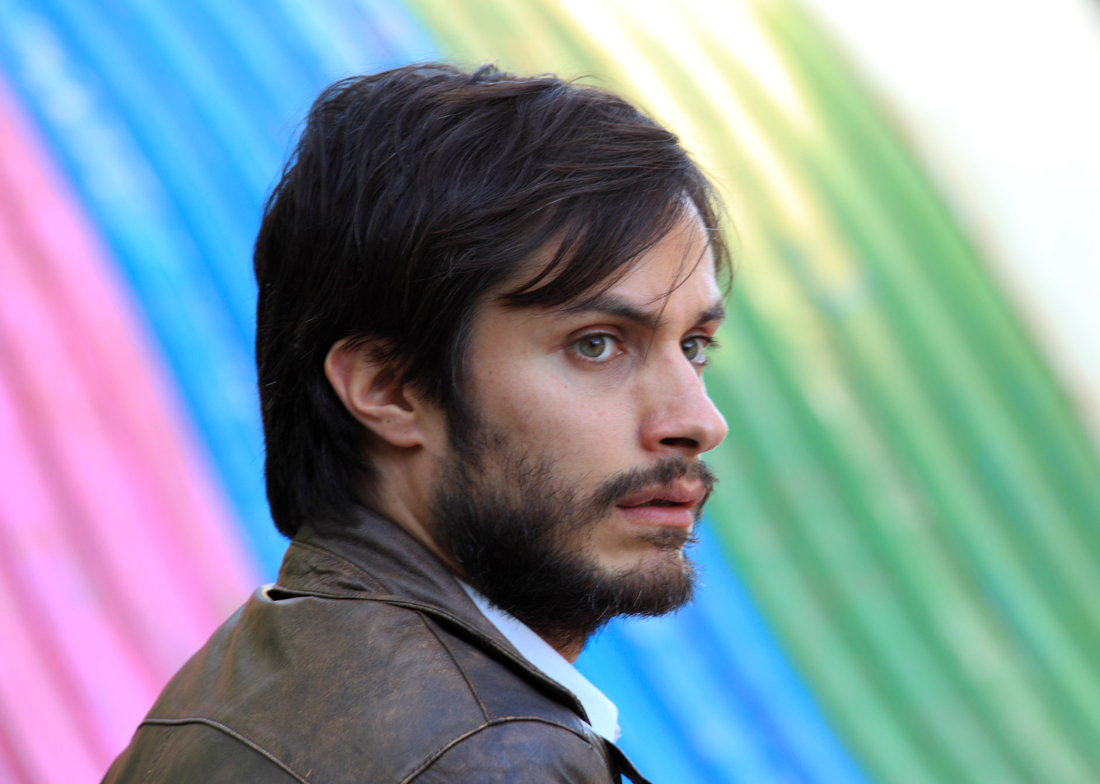Where advertising and politics meet, movies usually turn cynical and satiric. Political ads foul our airwaves, reduce complex policies to soundbites, pander to our unspoken prejudices and fears, and convince us to vote for demagogues and crooks, say the likes of A Face in the Crowd, The Candidate, Wag the Dog, and many others. One interesting thing about No, which plays at the Modern Art Museum of Fort Worth this weekend, is how it runs completely counter to this tradition, depicting a real-life instance when advertising helped take down a dictator. Nominated for the Best Foreign Film Oscar this past year, this Chilean drama is an agreeably shaggy piece of entertainment whose social conscience gives the film its kick.
The movie takes place in the fall of 1988, as Chilean dictator Augusto Pinochet (seen only in archival footage) looks to legitimize his rule with a democratic referendum, offering citizens a chance to vote “yes” to keep him in power or “no” to demand that he step aside. For 30 days before the election, each side is allowed to run 15 consecutive minutes of TV advertising per night to make its case. Our unlikely hero is René Saavedra (Gael García Bernal), who has returned from exile in Mexico to forge a prosperous career as a creative director at a Santiago ad agency. When a Communist politician and family friend (Luis Gnecco) brings René into the “no” campaign, the adman finds that his clients want him to run grim spots full of statistics about how many people the regime has tortured and murdered. Ignoring all that, René goes blithely about his task as if he’s selling soda, using jokes and catchy songs to make voting “no” look fun, edgy, and hip.
The movie is based on El plebiscito, a stage play by distinguished Chilean writer Antonio Skármeta — one of his novels was adapted into the Italian film Il Postino. Pedro Peirano’s script carefully notes all the obstacles facing René: His clients don’t believe they can win. The electorate is either scared or apathetic. His boss (Alfredo Castro) is in bed with the government and offers him a partnership in the ad firm in exchange for dropping the “no” campaign. Later, government thugs show up at his house and workplace to intimidate him and threaten his young son (Pascal Montero). And one anti-Pinochet politician responds to the happy ads by invoking the memory of his friends beheaded by the regime and telling René, “Go fuck yourself, asshole!”
Against this background, the movie gathers momentum from the juxtaposition of the bouncy “no” ads and the stuffy “yes” ads, which feature anthems performed by opera singers and footage of the dictator being nice to children. As the opposition’s campaign gains traction, the bewildered government strikes out cluelessly and is eventually reduced to lamely parodying its opponents. The ads we see are the actual TV spots that aired in Chile in 1988, and the rest of the movie is shot with outdated camera equipment on faded video stock to match the look of those commercials.
Director Pablo Larraín is an unlikely choice for this material as the son of prominent Pinochet supporters, a fact that engendered much controversy in Chile. His previous films dealt with the regime’s cultural and psychological fallout through marginal antiheroes like the sexually obsessed morgue clerk in Post Mortem or the murderous psychopathic Travolta wannabe in Tony Manero. Next to those characters, René is the picture of mental health.
Yet this ordinary guy is no less fascinating, motivated not by political convictions but by a professional challenge that everyone else thinks insurmountable. Sporting a shaggy hairstyle with a rat-tail, García Bernal shifts easily between funny and serious as the material dictates, and his take on the distinctive Chilean accent (lots of dropped s’s) blends in with the native actors’. The movie’s depiction of the “no” campaign’s ultimate success will make you want to wave a flag and shout “Viva Chile!”, but René’s muted reaction to it all sparks stimulating questions about where he ends up. Is he simply a trained salesman who stumbles into a winning strategy? Or is he a hero who, having slain the dragon, now just wants to live quietly and produce commercials for telenovelas? Either way, No tells the story of a creative man who helps overthrow a tyrant by knowing his audience and daring to be unserious, and the result is amusing and inspiring in equal measure.
[box_info]
No
Starring Gael García Bernal. Directed by Pablo Larraín. Written by Pedro Peirano, based on Antonio Skármeta’s play. Rated R.
[/box_info]












